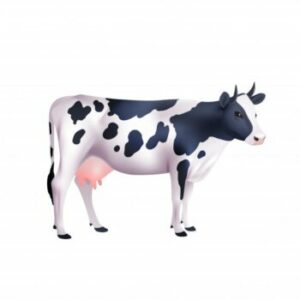
How to say cow in Spanish?
¿Cómo se dice cow en español? Cow in Spanish translation: vaca.
The Spanish word for cow is “vaca.” This word is used to refer to the female of the species Bos taurus, which is commonly raised for its milk, meat, and hides. Cows are an important part of many cultures and are valued for their contributions to agriculture and food production.
In Spanish-speaking countries, cows are an important source of milk, cheese, and meat. They are raised on farms and ranches, and their milk is used to make a variety of dairy products, such as cheese, butter, and yogurt. Cow meat, known as “carne de vaca,” is also a staple of many traditional dishes in Spanish cuisine.
In addition to their role in agriculture and food production, cows also have cultural and symbolic significance in some Spanish-speaking countries. For example, in some parts of Spain, cows are featured in traditional folk festivals and parades. In some Latin American countries, cows are considered sacred animals and are associated with fertility and prosperity.
Overall, the word “vaca” is an important term in the Spanish language, representing an animal that has significant economic, cultural, and symbolic value in many Spanish-speaking countries.
Examples:
La vaca es hermosa. – The cow is beautiful.
A mi prima le encantan las vacas. – My cousin loves cows.
Yo tengo una vaca en mi casa. – I have a cow in my house.
La vaca de mi hermana es hermosa. – My sister’s cow is beautiful.
La vaca da mucha leche. – The cow gives a lot of milk.
De la vaca se saca el queso. – Cheese is removed from the cow.
Ella tenía a Úrsula, la vaca. – She had Ursula, the cow.
Escucha el suave mugido de la vaca. – She hears the soft moo of the cow.
Las vacas son grandes y gordas. – Cows are big and fat.
También las vacas tienen cola. – Cows also have tails.
La vaca no es más que la hembra adulta de un buey. – The cow is nothing more than the adult female of an ox.
Es de muchos colores la vaca. – She is of many colors the cow.
Conseguía la leche de una anciana que tenía la vaca. – She got the milk from an old woman who had the cow.
La cabeza de la vaca es muy grande. – The head of the cow is very large.
Mi tía ordeña a la vaca. – My aunt milks the cow.
Mi papá reparte la leche de la vaca en el desayuno. – My dad hands out the cow’s milk for breakfast.
La carne que nos brinda la vaca es muy especial. – The meat that the cow gives us is very special.
La vaca forma parte de nuestra alimentación. – The cow is part of our diet.
A la vaca le gusta comer yerba. – The cow likes to eat grass.
A la vaca le gusta el campo. – The cow likes the field.
En el establo, una vaca, mugió suavemente. – In the barn, a cow, she mooed softly.
Varias ovejas y vacas pastaban detrás de la cabaña. – Several sheep and cows were grazing behind the hut.
La vaca tiene la pata larga como la cigüeña. – The cow has a long leg like the stork.
Mi tío me dijo que le gustaba criar a la vaca. – My uncle told me that he liked to raise the cow.
Yo quisiera tener una vaca en mi casa. – I would like to have a cow in my house.
Mi mamá le tiene miedo a la vaca. – My mom is afraid of the cow.
Me asusté, cuando vi a la vaca detrás de mi. – I was scared when I saw the cow behind me.
De la vaca se pueden sacar muchos alimentos. – Many foods can be taken from the cow.
Las vacas suelen ser gordas. – Cows are usually fat.
Mi primo tiene una vaca colorada. – My cousin has a red cow.